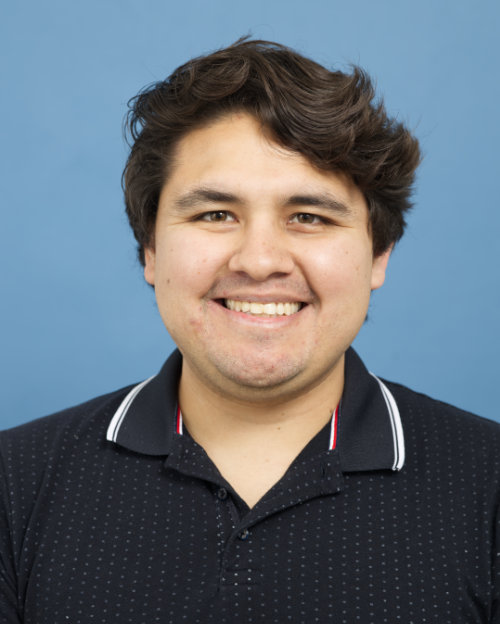Meet Our Lab!
A conversation with Daniel Llanas Cornejo, MSc
Meet Our Lab!
A conversation with Daniel Llanas Cornejo, MSc
It's a bustling Tuesday afternoon, and our clinic has been open for a couple of hours. Much like any other day, today proves to be a busy one at the Travel Clinic UZH. People arrive, ready to receive a thorough and personalized consultation for their upcoming travels. Meanwhile, the clinic's in-house laboratory has been operational for a while - ready to work behind the scenes, to provide our customers with the best possible service.
Today, Daniel Llanas Cornejo, Msc, a lab-technician at the in-house laboratory within the Institute of Epidemiology, Biostatistics, and Prevention, Department for Public and Global Health, will open the doors for us and offer an insight into a typical day at work.
Adapting to the Clinic's Opening Hours
Since on Tuesdays and Thursdays the clinic opens its doors only around noon, the lab team focuses their work during the morning hours on samples on ongoing studies at the institute. Once the clinic welcomes its first customers, work shifts from research to diagnostics. One of the team members will go upstairs into the clinic to gather any samples collected there. Diagonstic samples are being treated with priority to ensure a fast result for the customers.
Potentially Infectious Samples
Upon the laboratory's opening in 2020, with a primary focus on examining SARS-CoV-2 samples, a crucial consideration was the assumption that the samples they were handling were potentially infectuous. Therefore, the team established an environment where they could safely handle such samples without putting whoever was working at risk.
The key to keeping the workspace secure is the "microbiological safety cabinet". This machine provides a controlled environment, effectively containing particles - may they be viruses, bacteria or other elements the team wishes to stay within. The cabinet operates on an airflow principle, creating a barrier that prevents particles from escaping.
This controlled space serves for both research as well as diagnostic samples. However, for quality management purposes, the processing of research and diagnostic samples are only being done during strictly separated time slots. Contamination can happen and would compromise the integrity of the results. Therefore, effective time management and adherence to hygiene standards are essential.
Analyzing Antibody Samples
One of the most important instruments in the laboratory is the machine dedicated to analyzing antibody titers. This device operates as a closed system, requiring only a test strip and a sample for analysis. The entire testing process happens within the machine and does not require any intervention by lab technicians. It is capable of running up to 12 different samples simultaneously and it completes the analysis in a timeframe ranging from 30 to 90 minutes.
The machine also provides interpretations of the results. For instance, in a Varicella test:
- Value smaller than 0.6 → interpretation is negative.
- Value between 0.6 and 0.9 → interpretation is equivocal.
- Value above 0.9 → interpretation is positive.
An equivocal interpretation means that the patient has been in contact with the virus and developed some antibodies, but not at levels considered positive. A positive interpretation suggests the person has sufficient antibodies to prevent the onset of the disease.
Currently, our Travel Clinic's in-house laboratory offers titers for Hepatitis B, chickenpox, rubella, measles, and mumps. Additionally, although less frequent, the SARS-CoV-2 PCR tests are still in demand, with in-house analysis completed within 30 minutes.
The advantages of having an in-house laboratory are evident: information circulates quickly, is managed internally and leads to more reliable and accelerated results. This significantly impacts the customer service level that we, as a team, consistently strive for.
Infection or protection?
The current focus involves the ongoing validation process to include Sexually Transmitted Infection (STI) tests for detecting gonorrhea, chlamydia, and mycoplasma genitalium. In addition to expanding the range of tests offered in the clinic, the goal is to provide a holistic approach to healthcare for travelers. By incorporating STI tests for gonorrhea, chlamydia, and mycoplasma genitalium into the clinic's services, it is possible to promote overall well-being and ensure that travelers receive the necessary care and support during their journeys.
These tests operate on a qualitative basis, meaning their goal is to determine the presence or absence of specific antibodies and/or viral particles in a given sample. By looking for presence, one is able to detect whether there are viral particles (indicating an infection) or antibodies (indicating protection).
«If one of us is advancing, we’re both advancing.”
Having completed his master’s degree in biomedical science in Glasgow, Scotland, Daniel holds a bachelor’s degree in biotechnology and genomics in Mexico, just like his wife. They decided to look for PhD programs and started applying to various universities in different cities. His wife then was accepted in a program at University of Zurich, Switzerland, leading them to relocate to Switzerland. “If one of us is advancing, we’re both advancing”, reflects Daniel.
As his wife commenced her PhD program, Daniel started taking German courses and looking for jobs. Despite Switzerland facing closures in the spring of 2020 due to the pandemic, doors opened for Daniel. He officially joined our laboratory, contributing to national Covid-19 studies. Since then, he has remained an integral part of the team.
Text: Sofia Ricar
